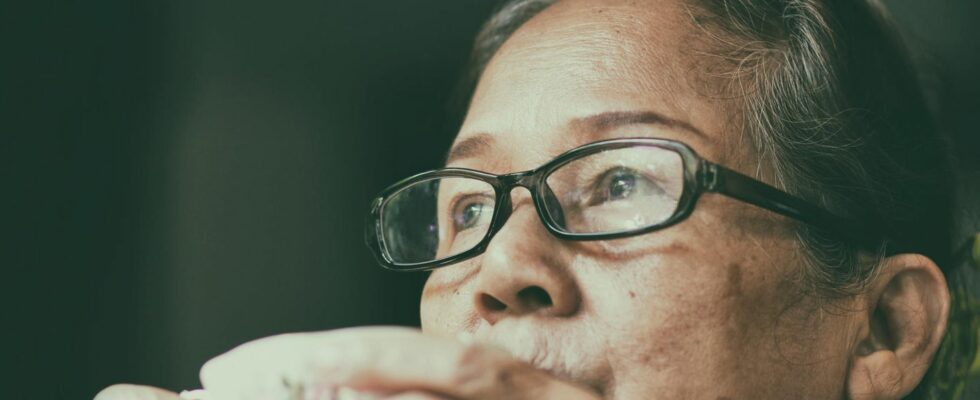palliative psychologist
People who live by this principle end up having the fewest regrets
© Mama Belle and the kids / Shutterstock
Life is precious and the thought of looking back at the very end and realizing you wasted it is frightening for many people. What can we do to prevent this? We spoke to a palliative care professional about this.
Unlike other animals, we can be and do many things in our lives. We can work as engineers or as nurses. We can be funny or serious. We can go jogging, play football and the recorder, eat vegan, go on vacation to the south of France in a camper van and lose ourselves in fantasy books. A lion, on the other hand, cannot say, for example, I’d rather not eat meat from now on. A jellyfish doesn’t have to think about whether they need a driver’s license or whether they want to be confirmed.
We can feel privileged and fortunate that we as humans have some freedom and opportunities and can shape our lives in many different ways. But it can also scare us. Because unlike a jellyfish, one day we might look back and think: Damn, because of this confirmation back then, I blocked paths that I would have loved to tread. But now it’s too late. (Under the hypothetical assumption that there are restrictions and requirements associated with confirmation, as is the case in some denominations.) But what can we do to prevent this from happening to us? So that at the end of our lives we go in peace instead of regret? So that whenever the time comes, we are prepared for our death? We spoke to the palliative psychologist Hanna Salm about this.
The most important cornerstones for a happy life
Like the US psychologist and head of the unique long-term study “Harvard Study of Adults Development” Robert Waldinger, Hanna Salm also believes based on her experiences that our personal relationships play a central role in our happiness in life and our sense of fulfillment (you can read here what the palliative psychologist says terminally ill people quarrel most and here why Robert Waldinger believes relationships are the key to happiness). Giving people who mean something to us (and we to them) a high priority in our lives is therefore a decision that we certainly do not need to regret in the end. But we are more than our relationships. Our life does not consist solely of maintaining social contacts. What can we do to avoid having the feeling overall, i.e. in relation to all areas of life: I’m not ready yet, can’t that be all?
“The key question is what can we do about it own to live life. And not one that just happened to us.”, according to Hanna Salm. Am I living the life I want? Am I with the people I want to be with? Am I doing what I find fulfillment, meaning or joy in my job? To keep pausing and reminding ourselves of what is important to us, to check whether we are prioritizing these things that are important to us – from the experience of the palliative psychologist, this is a measure that prepares us and says goodbye in peace can promise. “I’ve noticed that people find it easier to let go in the end the more authentically they live, that is, the more they live as they are,” says Hanna Salm. And: “I’ve often heard the phrase, ‘I wish I hadn’t put off so much until later.'” Hanna Salm can also confirm based on her perception that it is rarely mistakes that people have made and regret in the end, but rather omissions and things that they did not dare.
Often it doesn’t have to be a big change
Admittedly, in practice it is certainly not easy to organize our lives exactly as we want them to, or to adapt them whenever we see a need to do so. Once we’ve charted a course, gotten into a rut, sprinting along the hamster wheel with no direction, it can be incredibly difficult to break out and change direction. But often we don’t have to be so radical. Often we don’t need to change much to achieve much. A shift in priorities is often enough to reclaim our lives. Sometimes it helps to remind ourselves why we chose the path we are on, to make sense of it and find our motivation or belief again. And sometimes, just by looking consciously, we can position ourselves differently, realign our attitude, even want exactly what is, and suddenly we are no longer the driven, but the driving force.
Unlike other animals, we can be and do many things in our lives and have many great options to choose from. If we make decisions here and there that we doubt afterwards, that we would not make the same way at a later point in time with more knowledge and experience, that is no reason to grieve – life is an open-ended experiment. In fact, it would be a shame if we didn’t design our personal experiment ourselves, but “just let it happen”. Because we don’t have to be human to do that. We might as well be jellyfish.

